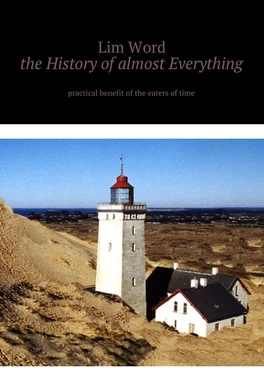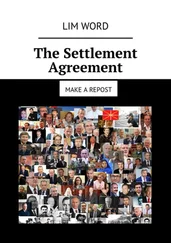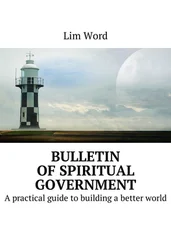All parties to the conflict are exhausted, criticized by civil society, and are fully prepared to negotiate peace. On March 18, 1856, the Paris Peace Treaty was signed. Russia agrees on the freedom of navigation on the Danube, renounces the protectorate over Serbia, the Moldavian principality and Wallachia. Returns the Turkish city of Kars along with the surrounding territories, in exchange for “all other places occupied in the Crimea by the Allied forces.” The Black Sea is declared neutral; and Porte, and Russia, and any other state in peacetime is forbidden to have a navy here. The fortifications of Sevastopol are being destroyed.
Well, and, yes; The key to the Church of the Nativity in Bethlehem remains with the representative of France. Nicholas could have guessed himself that the moral right to patronize Christians from a man who rules the country where Christians are sold – even with the land, at least without, can not be.
Russia suffers a minimal loss of territory, but the Triple Alliance of Emperors-winners remains in the past, the primacy in Europe from Petersburg moves to Paris.
Losses of the parties: Russia – 140 thousand people, France – 97 thousand, the Ottoman Empire – 45 thousand, Great Britain – 22 thousand, Sardinia (a large island off the coast of Italy, the strongest then Italian state) – 2 thousand people. All losses of the allies – 166 thousand people.
The failure of Russia ruinously affects the health of the emperor. Raise his tone can send a message about the capture of Evpatoria, the initiator of the assault is the very Nikolay the First. But, on the evening of February 29, the courier brings news of the siege and heavy losses of the Russian army. The Emperor, as if intentionally accepting a review of marching battalions in a light uniform, already infected with the flu; the disease gives complications and, on March 2, 1855, the monarch dies.
On the same day, the throne is occupied by the son of Nicholas I, 37-year-old Alexander II. He is married to the 30-year-old princess of the Hessian house Maximilian Augustus Sophia, perhaps the receptionist, the daughter of the “Great” (this word prefix means the middle between the king and the duke) of Duke Ludwig II (Germany).
The fate of the Russian peasants to the new tsar, as follows from his speeches before the nobility, is not particularly interesting, however, the monarch points out that the need for the abolition of serfdom is overdue, and “it is much better that it happens from above than from below.” The emperor is offered such a solution: two-thirds of the landlord possessions are pledged, under the security of the loans taken from the state, it is necessary to pay only a small difference in order to redeem them, transfer the peasants attached to the estates into state ones, and then completely free them.
But such a brilliant plan of the manager of the state property of the official V. Kiselev, the tsar and the nobility is rejected. Too it would be for ordinary people nice, magical and clear. Get the freedom in a jiffy, yes even the estates of your former serf-owners in addition? Why, it is possible to avoid the revolution in the future, and to eliminate the nobility (physical)! The answer is no!
A very difficult to understand Manifesto of 17 acts “On the Most Gracious Granting to Free Serfs of the Rights of the Condition of Free Rural People” is published in Moscow on March 5, 1861. The main provisions: peasants are released, they are transferred to their movable property, as well as personal houses and buildings. From this moment the master does not have the right to sell people, to resettle them, to force them to make marriages, at his own discretion. The landlord allocates a certain field allotment to the rural society (namely, to the “world”, a certain likeness of the Soviet collective farm). The community council distributes the land among the peasant participants at its own discretion. Further, attentively: a person has no right to refuse a given site within 9 years, even if he could immediately redeem it completely. While the legalized act of sale has not occurred, the plowman must work out the corvee or pay the rent, that is, be in a so-called temporary-obligated condition. What kind of punishment is envisaged in case of disagreement and then carry out the processing of this duty, the Manifesto does not disclose, as well as other details; obviously, accrual of arrears to the rural world, to an individual, a debt prison, and so on. In reality, a house, movable property, but not a means of production-land itself and draft animals-can be selected for arrears.
The peasant has the right immediately (or more precisely, in two years) to give up the right to purchase land; then he gets a quarter of the established minimum of the allotment and becomes free, albeit without any means of subsistence.
If, after 9 years, the head of the family refuses his land (usually 5 acres for the male soul, including children), he is released from any obligations to the landowner and the state.
When (not less than 9 years later) the peasant feels that he is ready to bear an increased financial burden, and wants to leave the site at his place, he applies to a state institution that pays out the money ransom to the landowner. The initial payment is 20% directly to the land owner. Since then, on the one hand, a person tears up all legal relations with the landowner, in effect, redeems himself and the family from slavery; on the other hand, he gets into debt bondage, paying the entire amount to the state for 49 years, from 6% per annum.
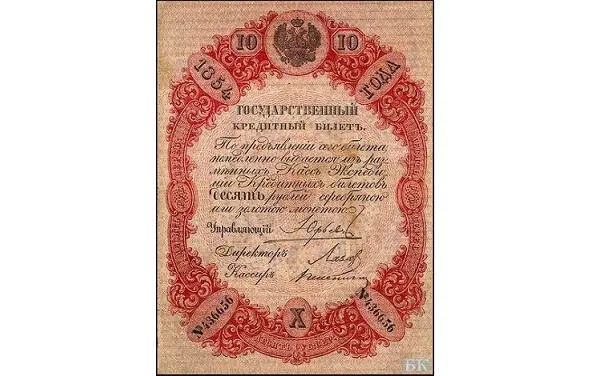
1
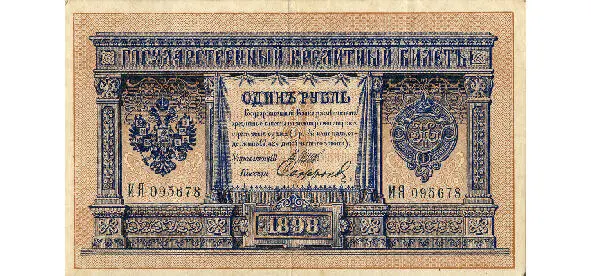
2
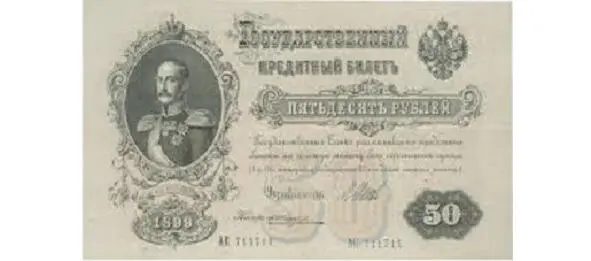
3
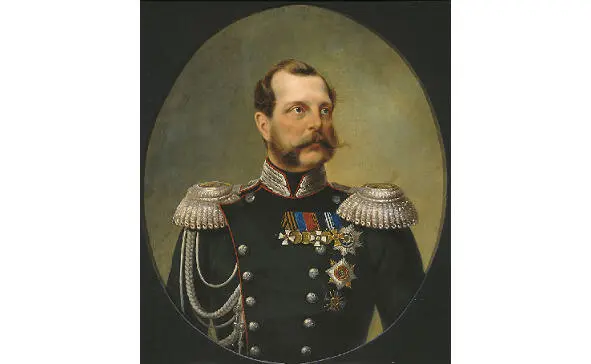
4
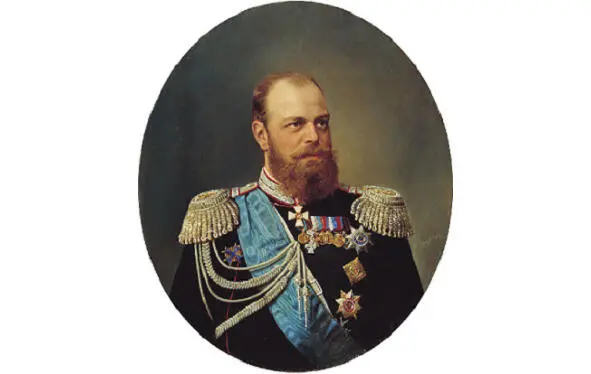
5
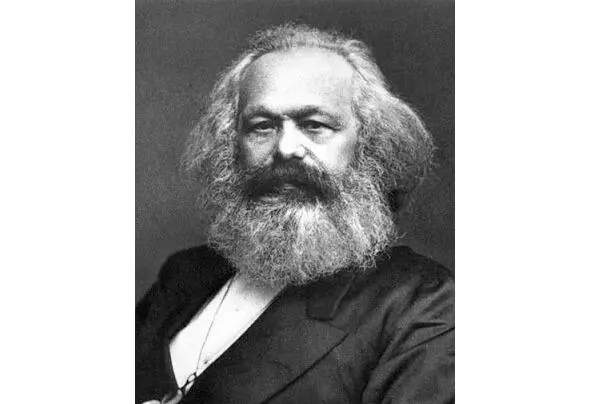
6
1. Ten rubles in 1854, i.е. the Crimean War. An adult healthy person is then, according to high metropolitan rates, 150—200 r.
2. Three rubles, in circulation 1898. In 1872, a cow costs 30 rubles, with an average salary of a skilled worker of 28 rubles a month. Inflation is low, because such prices go right up to 1914.
3. Fifty rubles, the issue of 1899, the “pay” of a lower-ranking official.
4. Alexander II Nikolaevich (Liberator), the Emperor of All Russia. Birth – 1818, Moscow, Bishop’s House (now destroyed) Chudova Monastery, Grand Duke Nicholas Pavlovich and Alexandra Feodorovna. In his youth – military service, long trips around Russia. The main milestones of the life journey: the refusal to expand into Alaska and the overseas territories, the necessary or not necessary joining (already, in general, thoroughly occupied) of Central Asia, the war in the Balkans, the unwieldy, cumbersome and predatory liberation of peasants from serfdom. He is married twice – the second time to Princess Ekaterina Dolgorukova (a morganatic marriage), only six children.
Killed March 13, 1881, the explosive device activist “Narodnaya Volya” (sixth attempt).
5. Alexander the Third, Peacemaker (1845 – 1894). Believed that his father’s murder was the result of liberal reforms, and not their insufficiency. For some time he managed to “tighten the nuts” of safety valves, limit self-government and freedom of speech – but already ten years after his departure, the steam boiler of the state gives a catastrophic crack.
Читать дальше
